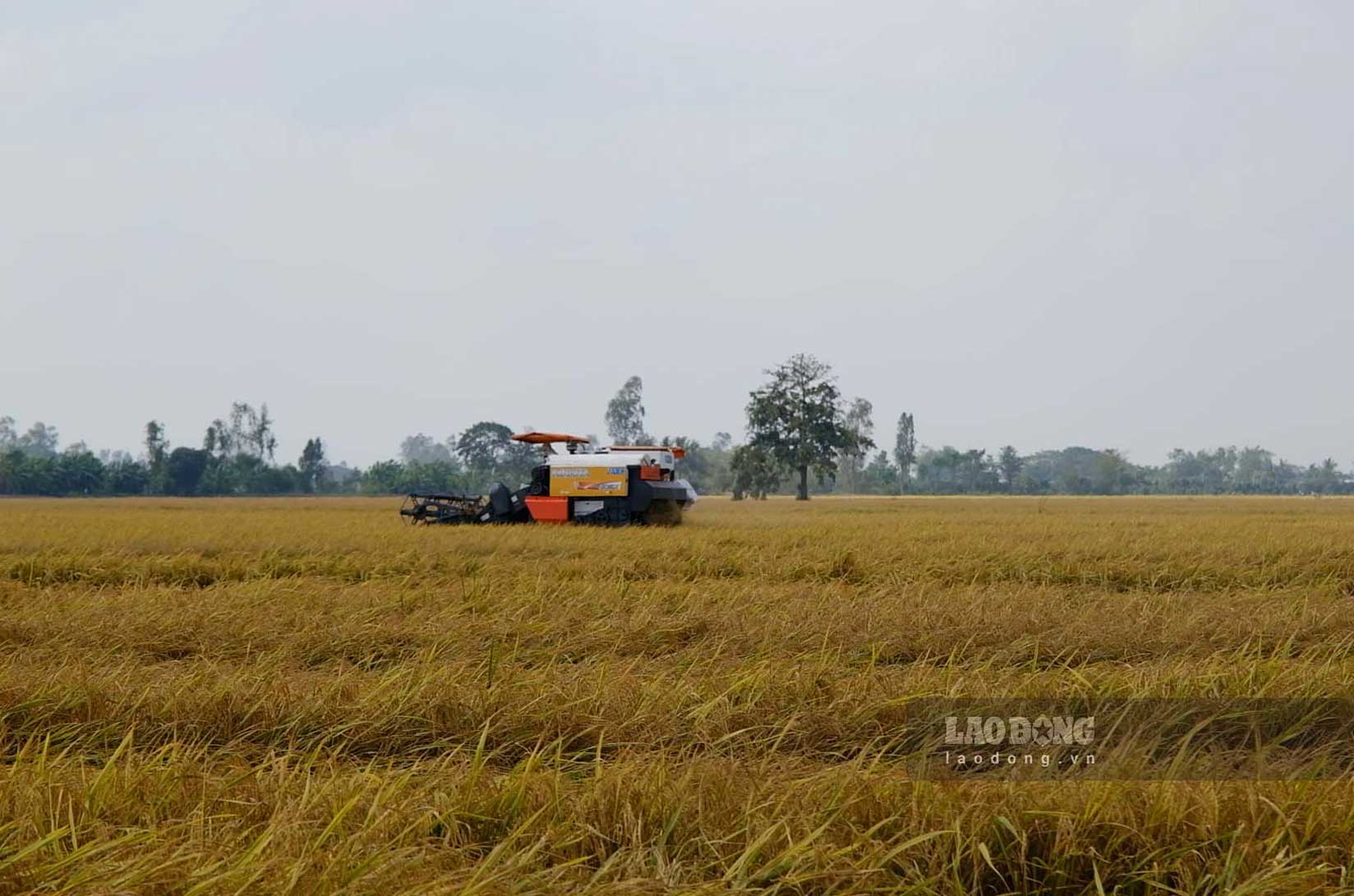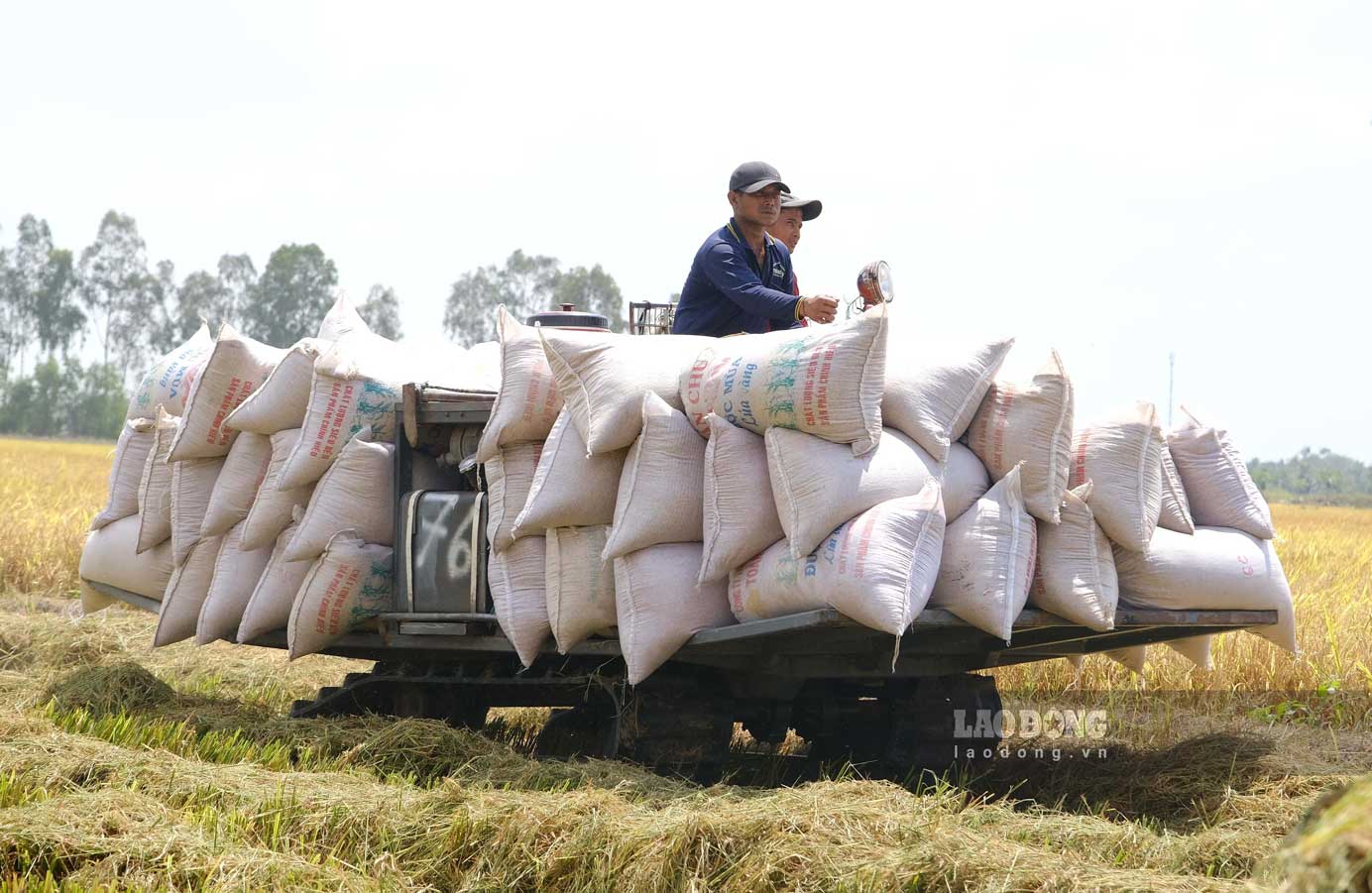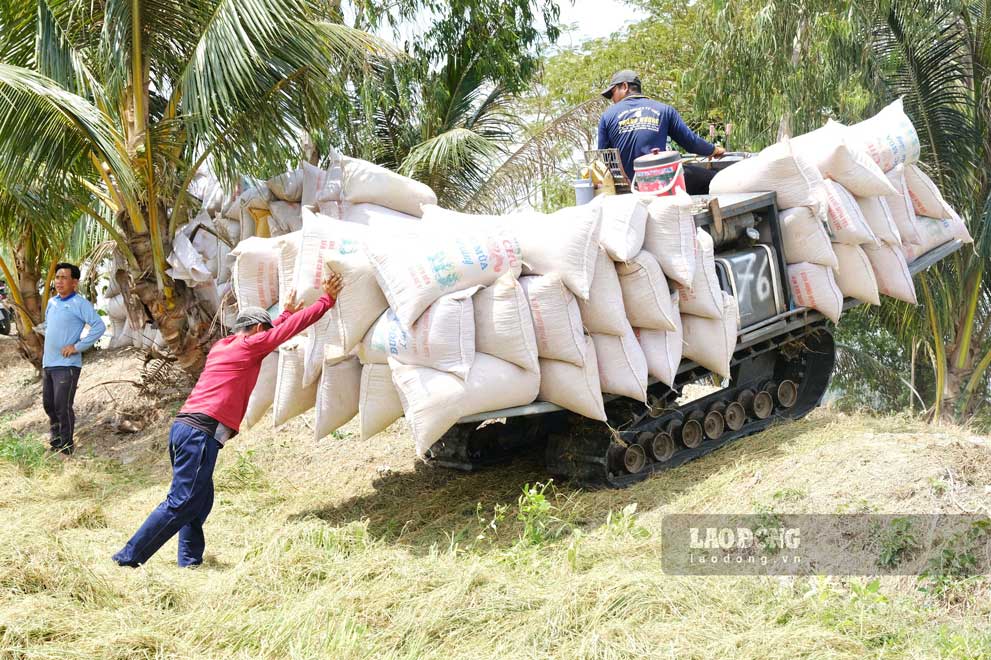At this time, many farming households in Can Tho City are entering the harvest period of the 2024-2025 Winter-Spring rice crop. Compared to the same period last year, rice prices are currently 1,500 - 2,500 VND/kg lower.

Mr. Le Chi Tam (Binh Thuy District, Can Tho City) said that the situation of traders purchasing rice is quite stable but the rice is not getting much. Currently, Dai Thom 8 fresh rice is sold to traders at 6,400 VND/kg, 1,500 VND/kg lower than last year's Winter-Spring crop.
"In the Winter-Spring rice harvest, the output is not difficult but the rice has lost value. If last year I sold this crop for 7,900 VND/kg, now traders only buy for 6,400 VND/kg. Unseasonal rains have appeared in recent days, although not much affecting rice productivity, causing the price of cutting machines to increase. To reduce risks and prepare for the new crop, I took the opportunity to sell immediately. The profit for this crop is about 1.8 million VND/1,000 m2, down 25% compared to the same time last year, said Mr. Tam.
Unseasonal rains at the end of 2024 also increased the production cost of the Winter-Spring rice crop of Ms. Ho Thi Nhien (Thoi Lai district, Can Tho city) by 20%. Faced with continuous unseasonal rain for many days, this farmer had to increase the pump to drain water in the fields and add fertilizer and pesticides to take care of the rice.
Production costs increased while rice prices were low, Ms. Nhien said, the Winter-Spring crop profit decreased by 30% over the same period.
A few days ago, Can Tho experienced unseasonal rain again. With unfavorable weather conditions, I could not wait for good prices but had to quickly sell to traders. The yield is 850 - 900kg/1,000 m2 at a price of 6,500 VND/kg, after deducting the cost of agricultural materials, labor, and cutting machines, I still make a profit of nearly 2 million VND/1,000 m2, nearly 1 million VND/1,000 m2 lower than last year, Ms. Nhien shared.

Low rice prices, production costs are increased due to erratic weather, especially the impact of unseasonal rain, Mr. Le Thanh An (Vinh Thanh district, Can Tho city) said that the profit from the Winter-Spring crop is about 2 million VND/1,000 m2.
For about a month now, unseasonal rain has appeared in the South. In Can Tho, there are not many, but if the harvest time is prolonged and the price is good, farmers will face double risks: reduced productivity and increased labor and cutting costs. Last year's Autumn and Winter crop, the rain caused rice to fall and harvest was difficult, I had to spend 400,000 VND/1,000 m2 to rent cutting machines, so this year I decided to sell early even though the price was low," said Mr. An.

According to the agricultural sector of Can Tho City, to ensure good harvesting and consumption of Winter-Spring rice, localities, cooperatives and farmers need to pay attention to preparing well the means and machinery for harvesting in conjunction with consumption; Proactively coordinate and connect with units and enterprises in rice consumption.
Localities also need to pay attention to organizing the hygiene of the in-field irrigation system, creating favorable conditions for vehicles transporting machinery for harvesting and transporting rice to the consumption location; Mobilizing and guiding farmers to collect and effectively use straw by-products in the direction of circular agriculture to increase income, avoid burning straw in the fields causing waste and affecting the environment.











